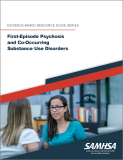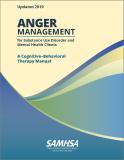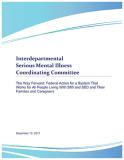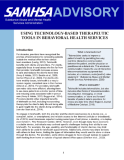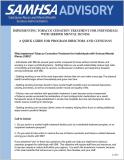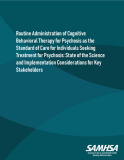
This guide provides mental health decision-makers (e.g., state/local mental health directors, treatment facility clinical directors, and other stakeholders) with rationale and evidence to support wide-spread expansion of Cognitive Behavioral Therapy for Psychosis (CBTp) across mental health systems.
Units per Product
Download
Routine Administration of Cognitive Behavioral Therapy for Psychosis as the Standard of Care for Treatment for Psychosis
File Type: PDF
File Size: 642 KB


